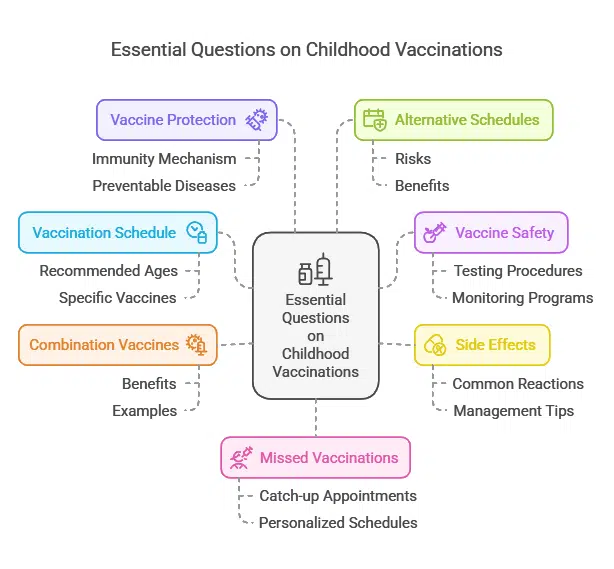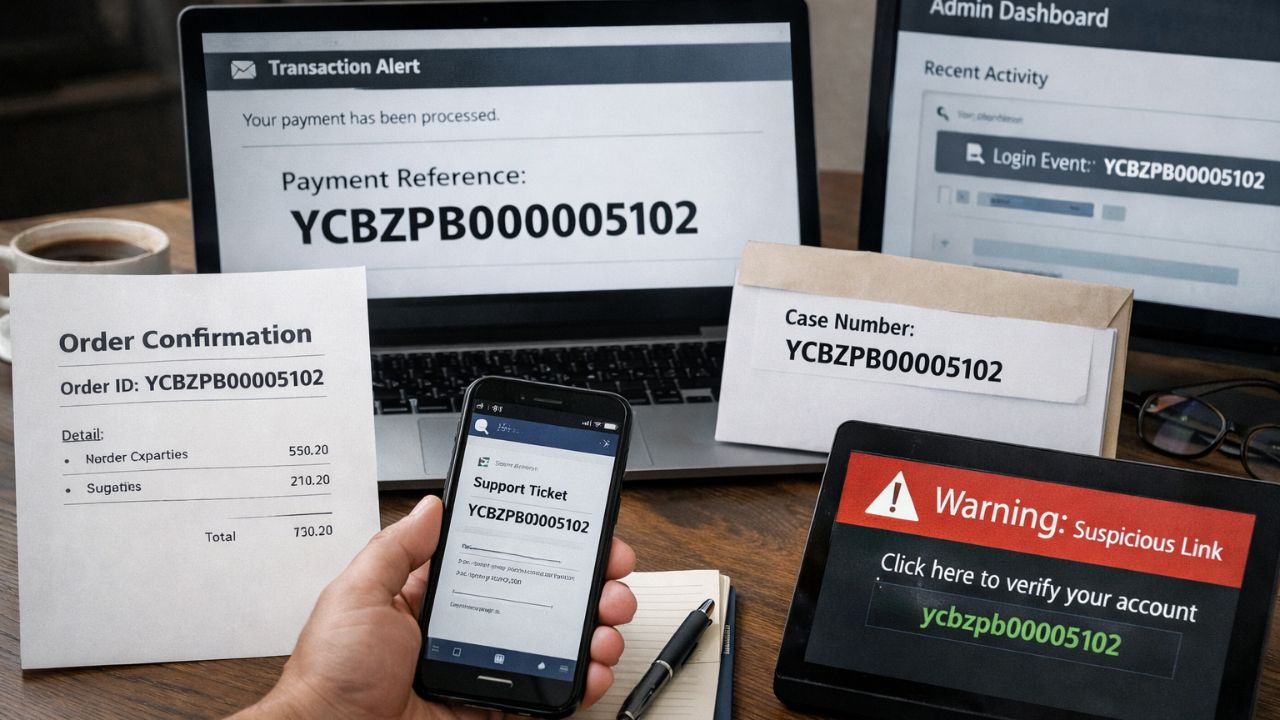When it comes to your child’s health, a few topics are as important and widely discussed as vaccinations. As a parent, you naturally want to make informed decisions that will keep your child safe and healthy.
Questions to ask your pediatrician about childhood vaccinations can help address any doubts and ensure your child gets the necessary protection. Childhood vaccinations are a cornerstone of preventive healthcare, protecting children from serious diseases that can cause lifelong complications.
However, with so much information—and misinformation—available, it’s vital to have open and honest discussions with your pediatrician. To help you navigate these conversations, here are 7 essential questions to ask your pediatrician about childhood vaccinations.
Each question is designed to address common concerns, provide clarity, and empower you to make confident decisions for your child’s well-being.
Why Discuss Childhood Vaccinations with Your Pediatrician?
Your pediatrician is your partner in ensuring your child’s health. Questions to ask your pediatrician about childhood vaccinations allow you to gain clarity and confidence about this critical aspect of preventive care.
Vaccines play a critical role in preventing diseases such as measles, mumps, and whooping cough. Understanding the role of vaccinations and addressing your concerns with a trusted healthcare provider can help ease worries and build confidence in the process.
These conversations also allow your pediatrician to share tailored recommendations based on your child’s age, medical history, and unique needs. By asking the right questions, you can make well-informed decisions that align with your family’s values and priorities.
7 Essential Questions to Ask Your Pediatrician About Childhood Vaccinations
Here is what you need to ask to your pediatrician about your child’s vacations.
1. Which Vaccinations Does My Child Need and When?
Every child follows a recommended vaccination schedule designed by experts, including the Centers for Disease Control and Prevention (CDC) and the World Health Organization (WHO). Questions to ask your pediatrician about childhood vaccinations should include details on when each vaccine is administered.
These schedules are based on years of research and are carefully planned to protect children when they’re most vulnerable. Ask your pediatrician to provide a detailed breakdown of the vaccines your child needs at various stages, from infancy to adolescence. This ensures your child’s immunity develops as intended.
Here is a quick overview of common childhood vaccinations:
| Age Range | Recommended Vaccines |
| Birth to 6 months | Hepatitis B, DTaP (diphtheria, tetanus, pertussis), Polio, Rotavirus, Hib, Pneumococcal |
| 6-18 months | MMR (measles, mumps, rubella), Varicella, Hepatitis A |
| 4-6 years | Booster doses for DTaP, Polio, MMR, Varicella |
| 11-12 years | HPV, Meningococcal, Tdap booster |
| 16-18 years | Booster doses for Meningococcal |
Actionable Tips:
- Download a vaccination tracker app to stay updated on schedules and reminders.
- Use a vaccination logbook to track your child’s immunizations.
- Ask your pediatrician if they provide printable vaccination schedules customized to your child.
2. Are the Vaccines Safe for My Child?
Vaccine safety is a top priority for parents and pediatricians alike. Questions to ask your pediatrician about childhood vaccinations should include specific concerns about safety and testing procedures.
Extensive research and rigorous testing ensure vaccines meet strict safety standards before they’re approved. However, individual concerns or medical histories may require additional discussion. Ask your pediatrician how vaccines are tested and monitored for safety.
For example, vaccines undergo multiple phases of clinical trials and continuous monitoring even after approval. Programs like the Vaccine Adverse Event Reporting System (VAERS) in the U.S. ensure that any potential side effects are thoroughly investigated.
Real-Life Insight: The CDC’s most recent data shows that serious allergic reactions occur in fewer than 1 in a million vaccine doses administered, underscoring their safety.
If your child has a history of allergies or specific medical conditions, it’s essential to address these with your doctor. They may recommend certain precautions or suggest alternative vaccination schedules tailored to your child’s needs.
3. What Side Effects Should I Expect?
Most vaccines have mild side effects, such as low-grade fever, soreness at the injection site, or temporary fussiness. Questions to ask your pediatrician about childhood vaccinations should include a discussion about common side effects and how to manage them. These side effects typically resolve within a few days and are a sign that the body is building immunity. Ask your pediatrician to explain common side effects associated with each vaccine and what you can do to manage them.
| Common Side Effects | Management Tips |
| Soreness or swelling at the injection site | Apply a cool compress to reduce discomfort. |
| Low-grade fever | Offer fluids and consult your pediatrician about fever reducers if needed. |
| Temporary fussiness | Provide comfort and reassurance to your child. |
Actionable Tips:
- Keep your child hydrated before and after vaccination.
- Dress them in loose, comfortable clothing to ease post-injection discomfort.
- Monitor their temperature regularly and keep a digital thermometer handy.
It’s also important to know when to call your pediatrician. Severe allergic reactions are extremely rare, but if you notice symptoms like difficulty breathing, swelling, or a high fever, seek medical attention immediately.
4. What Should I Know About Combination Vaccines?
Combination vaccines protect against multiple diseases in a single shot, reducing the number of injections your child needs. Questions to ask your pediatrician about childhood vaccinations should include whether combination vaccines are right for your child.
For example, the MMR vaccine protects against measles, mumps, and rubella, while the DTaP vaccine covers diphtheria, tetanus, and pertussis. Ask your pediatrician about the benefits of combination vaccines and how they are just as safe and effective as individual vaccines.
| Benefits of Combination Vaccines | Explanation |
| Fewer injections | Reduces stress for both parents and children. |
| Streamlined schedule | Simplifies vaccine administration and tracking. |
| Proven safety and effectiveness | Backed by extensive research and monitoring. |
Case Example: A 3-year-old receiving the DTaP-IPV-Hib combination vaccine receives protection against five diseases in one visit, minimizing needle-related stress.
Combination vaccines also help minimize discomfort for children, making the process less intimidating overall.
5. How Do Vaccines Protect My Child from Serious Illnesses?
Vaccines work by stimulating the immune system to recognize and fight specific pathogens without causing illness. Questions to ask your pediatrician about childhood vaccinations should include how each vaccine contributes to your child’s immunity.
This creates immunity, which protects your child if they’re ever exposed to the actual disease. Ask your pediatrician for examples of vaccine-preventable diseases and how vaccines have dramatically reduced their prevalence over time.
Key Facts:
- Measles cases globally dropped by 73% between 2000 and 2018 due to vaccination programs.
- Polio has been eradicated in most regions worldwide, thanks to sustained immunization efforts.
For instance, before the introduction of the measles vaccine, hundreds of thousands of children were infected annually in the U.S. Today, cases are rare, thanks to widespread vaccination efforts. Similarly, polio, once a debilitating disease, has been eradicated in most parts of the world due to vaccination.
6. Are There Alternatives to Vaccination Schedules?
While the standard vaccination schedule is designed for optimal protection, some parents may prefer alternative schedules. Questions to ask your pediatrician about childhood vaccinations should include whether alternative schedules are safe and effective.
Discuss any concerns you have with your pediatrician to understand the risks and benefits of adjusting the timeline.
| Consideration | Standard Schedule | Alternative Schedule |
| Number of appointments | Fewer, as multiple vaccines are given at once. | More frequent appointments. |
| Level of protection | Immediate, as per recommended guidelines. | Delayed, increasing vulnerability. |
| Pediatrician’s recommendation | Fully supports for safety and efficacy. | Often not advised due to risks. |
Expert Advice: Studies consistently show that adhering to the recommended schedule provides the most effective and timely protection for children.
Delaying or skipping vaccines can leave your child vulnerable to preventable diseases, so it’s important to weigh all factors carefully.
7. What Happens If We Miss a Scheduled Vaccination?
Life can be unpredictable, and sometimes, a scheduled vaccination may be missed due to illness, travel, or other factors. Questions to ask your pediatrician about childhood vaccinations should include what steps to take if a dose is missed.
Ask your pediatrician about catch-up vaccination options to ensure your child stays protected. Many vaccines can still be administered later without compromising their effectiveness.
| Scenario | Action Plan |
| Missed a single vaccination | Schedule a catch-up appointment as soon as possible. |
| Missed multiple vaccinations | Your pediatrician can create a personalized catch-up schedule. |
| Child is unwell on the vaccine day | Consult with your pediatrician to determine the next best date. |
Pro Tip: The CDC provides a catch-up immunization schedule for children and adolescents, which your pediatrician can use to ensure your child remains protected.
Tips for a Productive Conversation with Your Pediatrician
To make the most of your visit, come prepared with a list of questions and any concerns you’d like to address. Questions to ask your pediatrician about childhood vaccinations can serve as a starting point to ensure your child receives comprehensive care.
Bring your child’s vaccination record and ask for clarification on any points that may be unclear. Taking notes during the appointment can also help you remember key information.
Practical Tips:
- Write down your top three questions before your visit.
- Share any family history of adverse reactions to vaccines.
- Ask for vaccine information sheets to review at home.
Addressing Common Myths About Childhood Vaccinations
Misinformation about vaccines is widespread, but your pediatrician can help you separate fact from fiction. Questions to ask your pediatrician about childhood vaccinations can include clarifications on common myths. Here’s a look at some common myths:
| Myth | Fact |
| Vaccines cause autism | Extensive research has shown no link between vaccines and autism. |
| Too many vaccines overwhelm the immune system | Children’s immune systems handle exposure to multiple antigens daily. |
| Natural immunity is better | Vaccine-induced immunity is safer and avoids the risks of severe illness. |
Expert Insight: The National Academy of Medicine reaffirms that vaccines are among the safest and most effective public health tools available.
Takeaways
Proactively discussing childhood vaccinations with your pediatrician is one of the best ways to safeguard your child’s health. Questions to ask your pediatrician about childhood vaccinations help address doubts, clear misconceptions, and ensure your child gets timely protection.
By asking the right questions and staying informed, you can ensure your child receives the protection they need while addressing any concerns you may have. Remember, your pediatrician is there to support you every step of the way.
Don’t hesitate to ask questions and seek clarity—your child’s health is worth it.










































